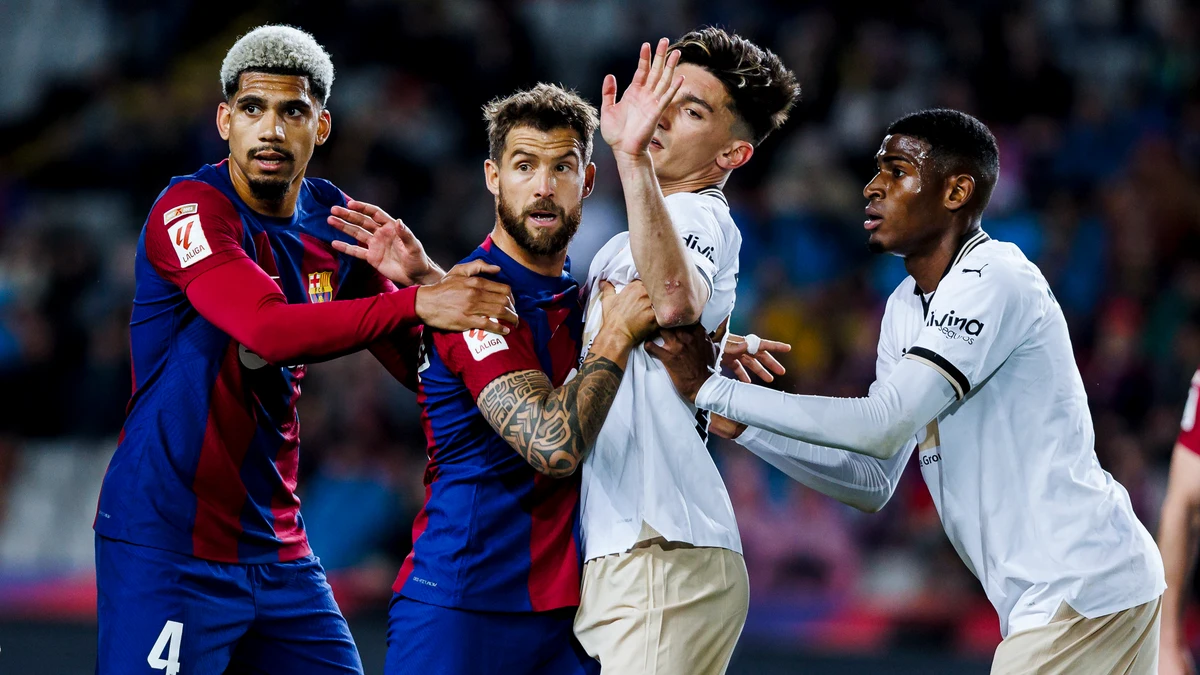On Tuesday, the Chicago Symphony Orchestra announced its next music director, the Finnish conductor Klaus Mäkelä.
Mäkelä will be the orchestra’s 11th music director, effective in the 2027-28 concert season, following the conclusion of Riccardo Muti’s tenure at the end of the 2022-23 season. The Chicago Symphony Orchestra Association’s board of trustees voted unanimously earlier Tuesday on his appointment, with the news shared with CSO musicians and staff that morning.
Mäkelä, 28, is the fastest-rising conductor of his generation. At 24, he became the chief conductor of the Oslo Philharmonic, and the music director of Orchestre de Paris at 25. He will be the youngest music director in the CSO’s history when he assumes the post in 2027. (The orchestra’s second music director, Frederick Stock, was 32 when he was appointed in 1905; Mäkelä will be 31.) His five-year contract has him leading the orchestra at least through 2032.
“I was very touched and, of course, incredibly honored,” Mäkelä told the Tribune about his appointment in an interview in New York in late March. “The (orchestra’s) spirit of wanting to do things really, really well was so impressive to me. I thought, ‘OK, I feel that they understand me, and I understand them. This could be someplace where we could build something.’”
His hiring came after a global search since early 2020 that included visits by a number of guest conductors, including Mäkelä in April 2022 and February 2023. Mäkelä returns to Chicago to lead the orchestra in concerts this week from April 4 to 6.
In the CSO’s news about the appointment, Mäkelä announced he will let his Paris and Oslo contracts expire in 2027. But that same year, he also becomes chief conductor of the Royal Concertgebouw Orchestra in Amsterdam.
CSO music directors typically guest conduct elsewhere in the world while holding their posts. Mäkelä’s contract guarantees at least 14 weeks of appearances with the Chicago orchestra each season — the same amount as Muti, his predecessor.
But for one conductor to helm two ultra-prestigious orchestras, like the CSO and Concertgebouw, is highly unusual in the classical music world. To devote his attention to those posts, Mäkelä told the Tribune his guest conducting days are essentially over. He’ll make exceptions only for the Berlin and Vienna Philharmonics — also considered the world’s finest — and his former colleagues in Paris and Oslo, because “they always will be my family.”
“I’m very spoiled that I get to conduct these orchestras,” he said with a boyish grin. “It’s also very healthy to guest conduct a little bit, too, because you have some impulses which are different.”
Mäkelä’s CSO obligations will ramp up as the 2027-28 season approaches. Thanks to a stopgap measure negotiated in the CSO’s most recent union bargaining agreement, Mäkelä has been vested with the final authority to hire musicians, “effective immediately,” according to Chicago Symphony Orchestra Association president Jeff Alexander. Beyond his appearances this week, he appears with the orchestra in two programs next season, conducting Mahler’s Third Symphony and CSO artist-in-residence Daniil Trifonov in Brahms’ Piano Concerto No. 2.
New music director of the Chicago Symphony Orchestra Klaus Mäkelä, left, poses with Chicago Symphony Orchestra Association president Jeff Alexander at the Mandarin Oriental New York on March 20 in New York. (Barry Williams/for the Chicago Tribune)
Mäkelä says future engagements will “crescendo” from there, with longer stints in the 2025-26 and 2026-27 seasons. Those seasons also include plans for a domestic and European tour, respectively.
Because of Mäkelä’s exclusive recording contract with Decca Classics, the orchestra will begin releasing albums under that label for the first time since Sir Georg Solti led the orchestra more than three decades ago. The first of those, Alexander says, may arrive “within a year or two,” before the official start of Mäkelä’s contract in 2027.
Mäkelä grew up in Helsinki, in a musical family: his mother is a pianist and his father a cellist. (His younger sister, an erstwhile violist, is a professional ballet dancer.) Mäkelä picked up cello; by 15, he was accomplished enough to substitute with the Helsinki Philharmonic.
He still plays regularly — in Oslo next month, he’s performing and conducting Brahms’ Double Concerto with Daniel Lozakovich, the young violinist who also appeared on his CSO debut program in 2022 — and admits he feels unsettled when he’s away from his cello too long. His interview with the Tribune came on the heels of such a stretch: just a few days before, Mäkelä had concluded a North American tour with the Orchestre de Paris and pianist Yunchan Lim.
“You need to play Brahms’ sextets and this kind of stuff in order to feel nourished. It gives me even more pleasure than conducting a Brahms symphony,” Mäkelä said.
Mäkelä made his professional debut at age 7, as part of the children’s chorus in a Finnish National Opera production of “Carmen.” But for young Klaus, the magic wasn’t onstage: it coursed from the pit, conjured by the conductor. He was just 12 when he started studying with Jorma Panula, a formidable pedagogue at Helsinki’s Sibelius Academy. Mäkelä follows in a long line of former Panula students who now lead top-flight orchestras: Esa-Pekka Salonen, Susanna Mälkki, Osmo Vänskä, Hannu Lintu, Jukka-Pekka Saraste, Mikko Franck and Santtu-Matias Rouvali, to name a few.
On the podium, it’s easy to see why orchestras fall hard and fast for Mäkelä. His gestures are clear and inspiring, often paired with an encouraging smile. In conversation, it’s more of the same: warm and open, he gives the impression of being a musician’s musician. He’s demure in the face of praise, but bubbles with exuberance whenever the topic shifts to musical history — whether describing an inspiring jotting by Leonard Bernstein in the margins of a Bruckner score or musing about how to translate the provocations of the “Rite of Spring’s” 1913 premiere to 21st century ears.
That deference to history is, at least in part, what sealed the deal with the Chicago Symphony — even as Mäkelä was courted by the Cleveland Orchestra, a peer ensemble to the CSO with whom he’s enjoyed a longer, deeper guest affiliation.
New music director of the Chicago Symphony Orchestra Klaus Mäkelä at the Mandarin Oriental New York on March 20. The CSO appointed its new conductor to succeed Riccardo Muti after a search of several years. (Barry Williams/for the Chicago Tribune)
“I was impressed that (the ensemble) sounded like the Chicago Symphony of the past. That was very beautiful, because in today’s world, orchestras start sounding the same,” Mäkelä said. “They sounded special.”
The CSO thought Mäkelä was special, too. Musicians praised his confidence, trust and efficient rehearsal technique — qualities apparent from their initial meeting. When Mäkelä first took the CSO podium to rehearse Stravinsky’s complete “Firebird,” in April 2022, he conducted the 45-minute ballet all the way through without stopping.
“He didn’t try to explain what he was going to do, or talk about the music. He said, ‘Good morning. Let’s begin,’” remembers Alexander, who observed from the audience. “Within the first minute, there was this immediate connection between Klaus and the musicians.”
Bill Buchman, the CSO’s assistant principal bassoon and one of six musicians on Mäkelä’s search committee, affirms that Mäkelä’s chemistry with the orchestra manifested almost immediately.
“Klaus had a knack for giving very clear, understandable instructions to fit into the bigger picture he was looking for, which was remarkable coming from a young conductor,” Buchman says.
Assistant concertmaster Yuan-Qing Yu, who also served on the committee, was recovering from COVID-19 during Mäkelä’s “Firebird” concerts. She recovered in time to attend the first concert of the cycle, where she was staggered by Mäkelä’s gestural command and big-picture thinking. His “capacity for the narrative of the piece,” she said, “kept your attention going from beginning to end.”
Staggering to her, too, was Mäkelä’s exultant reception in the hall, even before he’d conducted a note — a promising sign for an organization hoping to grow its audience, especially among those younger than 40.
“Even from the first time he was in Chicago, I felt this excitement. It was like people knew him,” Yu said.
After the 2021-22 season, the search committee circulated surveys to CSO musicians asking which conductors, of recent guest appearances, ought to be in the running for music director. Buchman says a “supermajority,” across instrumental groups, nominated Mäkelä based on his singular appearance with the orchestra.
“One of the questions we asked on (that) survey was, ‘List, in order, the top three candidates you think we should be considering for music director.’… One person returned the form as, 1. Klaus Mäkelä, 2. Klaus Mäkelä, 3. Klaus Mäkelä,” Buchman says.
Klaus Mäkelä conducts members of the Chicago Symphony Orchestra in a performance of López Bellido’s “Aino” at the Symphony Center on Feb. 16, 2023, in Chicago. (Shanna Madison/Chicago Tribune)
Between Mäkelä’s first appearance and his second, in February 2023, members of the CSO’s 15-person search committee — comprising orchestra musicians, administrators and board members — traveled to hear Mäkelä lead concerts in San Francisco, Oslo, New York and Tokyo. Those experiences only reaffirmed that the orchestra had found its match.
“The (Tokyo) concert, of Mahler 6, was at 7 (p.m.), and I had landed at 5:30. I thought, ‘Oh, I hope I can stay awake.’ And, of course, I was mesmerized the whole time,” Alexander said.
Mäkelä’s second CSO booking, in February 2023, was also anchored by Mahler — the composer’s Fifth Symphony. It was a gutsy choice: the symphony has been deeply associated with the CSO since Solti’s tenure.
But Mäkelä led a devastating, daring and uncannily finessed performance that was masterful even by his predecessors’ standards. “To witness a trust fall as elegant as this was a pleasure, and a privilege,” the Tribune wrote of those concerts.
After the final concert of the Mahler cycle, on Feb. 18, 2023, Alexander ushered Mäkelä into the Symphony Center green room. Waiting for him was the search committee, who formally invited him to be the next music director of the Chicago Symphony Orchestra.
“That was a beautiful moment,” Mäkelä said.
Conductor Klaus Mäkelä bows at the Symphony Center on Feb. 16, 2023, in Chicago. (Shanna Madison/Chicago Tribune)
Other finer points of Mäkelä’s appointment still hang in the balance. It’s unclear where his Decca exclusivity leaves CSO Resound, the orchestra’s in-house label since 2007. Mäkelä will be a key voice in naming the next composer-in-residence, but the position will be vacant next season for the first time since its inception in 1987. In a statement to the Tribune, Alexander hinted that such a selection “might very well come prior to the 2027-2028 season” but offered no further details.
When asked about future plans or initiatives that might characterize his CSO tenure, Mäkelä, too, shies away from specifics, except to marvel at the prospect of experimenting with the orchestra’s sound.
“A great orchestra is a very flexible orchestra — which has to do with balance, with color, with the density of sound. … I’m very much looking forward to seeing how far we can go with all of this,” Mäkela said.
“It feels like they are very hungry for music. And when they’re hungry for that, one can trust that we will discover things together.”
“Klaus Mäkela & Sol Gabetta” runs April 4-6 at Symphony Center, 220 S. Michigan Ave.; cellist Sol Gabetta replaces pianist Yuja Wang, who withdrew from these performances. Tickets $65-$399, cso.org.
Hannah Edgar is a freelance critic.
The Rubin Institute for Music Criticism helps fund our classical music coverage. The Chicago Tribune maintains editorial control over assignments and content.





